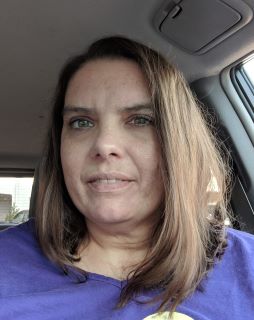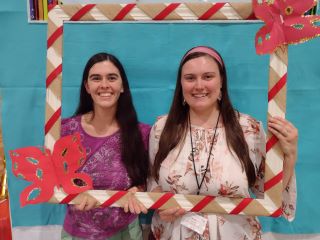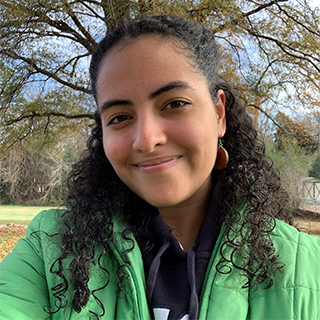-
Esther- Emma Grace Steil
 Written by Emma Grace Steil, Ministry Assisstant to Iron Rose Sister Ministries, and Spanish student at Harding University
Written by Emma Grace Steil, Ministry Assisstant to Iron Rose Sister Ministries, and Spanish student at Harding UniversityEsther was born into a time and place where she and her people were in exile in the land of Persia. The Jewish people were by some as less than, and by others as equals. That is still held true in all cultures between people of native descent and those whose ancestry is of another origin. During the reign of King Xerxes he banishes his queen from his kingdom, and begins to look for a new queen.
He invites many young virgins into his palace for what is, essentially, a beauty pageant to find who the new queen will be. Esther proves to be the most beautiful in heart and in her physical beauty out of all the other women brought into the palace, meanwhile, she is keeping her identity as a Jew a secret. Notice, she is not considered less than by anyone in the palace, but because of the beauty in her heart she is awarded a high position in the kingdom of Persia, a land she did not come from.
Meanwhile, Mordecai (cousin and caretaker of Esther) is in a fight with the Second in Command of Persia, Haman. Haman knows that Mordecai is a Jew, and he despises Mordecai because of where he comes from, his customs, and the way he worships. When Mordecai refuses to bow to Haman, Haman decides to not only kill Mordecai, but all Jews.
Haman approaches King Xerxes hoping to pass his law to kill the Jewish people. King Xerxes passes the law with the seal of his signet ring (this is a permanent promise that even the king cannot retract). Through her smarts and beauty she reveals to King Xerxes that she is one of the people Haman is trying to kill. The king becomes enraged and Haman is killed because the plan he made would have killed the queen, Esther. The king decided to make another signet-ring-promise that the Jewish people would be able to fight back on the day of their planned annihilation.
My favorite part about the story was that the King and Haman were blind to the fact that Esther was a part of the Jewish people that they had planned to kill. The king did not seem to care where Esther came from, but loved her for who she was and was able to see past what differences that might have separated them. Esther came into a position of power because God put her there. He made it possible for Esther to live the life of a hero in a land where her people were exiled. This story shows that though we may appear different, physically, we are truly defined by what is in our hearts.
God can use anyone, and God loves everyone. He does both these things despite who we are (by earthly terms), and what we have done. He always has and always will.
-
Every Role Matters
 Written by Rianna Elmshaeuser, volunteer with Iron Rose Sister Ministries in Colorado
Written by Rianna Elmshaeuser, volunteer with Iron Rose Sister Ministries in ColoradoYou are the main character in your story. Everyone in your life is a supporting character or background extra. But rather than asking ourselves what everyone else’s role is in our lives, the question we need to be pondering is, who am I in God’s story? Am I a background character? Am I a lead role or an extra? There are natural objections to this idea that will come to the mind of the average Christian. After all, God has an important role for each of us—a purpose—and that is absolutely correct.
But let’s take a moment and imagine a movie that has only the lead character in it. It is flat and uninteresting. There is no one to help move the plot along, no one to create drama, no colorful characters having coffee in the background of a coffee shop. Extras, background characters, supporting roles, and lead roles are all crucial to creating a vivid and exciting story.
Keep this thought in mind as we look at the relationships of Paul, Silas, Barnabas, and Timothy. The partnership between Paul and Barnabas begins in Acts 13 and continues until they have a falling out in Acts 15. Their partnership begins at the prompting of the Holy Spirit. Acts 13:2 tells us, “…the Holy Spirit said, ‘Set apart for me Barnabas and Saul for the work to which I have called them’” (ESV). After this event, they are sent out into a whirlwind of ministry and trouble. They would enter a city and preach, then be forced to flee from persecution. Throughout these chapters, it is only Paul’s sermons that are recorded.
The Apostle Paul was the greatest evangelist of the early church, if not of all time, aside from Jesus, of course. But would Paul have been able to keep on through persecution and being stoned without so faithful a friend as Barnabas? When Paul was lying on the ground outside the city where the Jews had thrown his mangled body, assuming him dead, would he have had the strength to get up without his friends surrounding him? Perhaps we are not a Paul, the lead role who stirred up every city he entered, converted thousands upon thousands, and wrote a large portion of the New Testament. But the Pauls of today need a Barnabas beside them, encouraging them, picking them up when they are down, and standing beside them when hard times come.
Silas had a similar role in God’s story. He was a partner and friend to Paul after his disagreement with Barnabas. Again, none of Silas’s sermons are recorded, only Paul’s, but they were together in the thick of it. When they were both beaten and thrown in prison, would either of them have found the strength to continue without the other? Imagine being in the dark in chains, badly beaten, and then you hear the clinking of chains and feel your friend’s hand on your arm as they begin to pray with you. As you pray, your hearts grow lighter and you both break into song, praising God. Friendships are of utmost importance and can serve as the guardrail that keeps people from careening over the edge into darkness.
Lastly, consider the relationship of Paul and Timothy. Paul and Silas met Timothy in Derbe and Lystra. Timothy was a young man whose mother and grandmother were believers, but his father was not. He was well spoken of by the church and Paul took him under his wing. We know from 1 Timothy 1:2 that they grew so close that their relationship became that of a father and son. Paul refers to Timothy as, “…my true child in the faith.”
Perhaps you are the one that needs mentoring or maybe you know someone that needs a mentor. On the hero’s Journey, there is always a mentor for the young hero who passes on wisdom to the upcoming generation. Today we do not have to look very far to find a young person struggling along in need of a mentor. Even young ones who come from a believing home need a mentor. Parents cannot be everywhere and see everything all the time. They need others to fill in the gaps.
If you have asked yourself, “What role do I play in God’s story,” and concluded that you are not a lead, rest assured that your role is just as important as someone in the spotlight. Even the people who are not mentioned by name had important roles in the ministry of Paul. They sent money, prayers, and letters encouraging him and other saints. Every person has an important part to play in the story of God, even if it seems negligible by human standards. What is your role in God’s story?
#IronRoseSister #teachthroughrelationships #learnthroughrelationships #intentionalteaching #mentoring #teachbyexample #PaulandBarnabas #PaulandSilas #PaulandTimothy #blog #guestwriter
-
For Love
 Written by Geissa da Paz, volunteer with Iron Rose Sister Ministries in Buenos Aires, Argentina
Written by Geissa da Paz, volunteer with Iron Rose Sister Ministries in Buenos Aires, ArgentinaWho’s never heard the phrase “doing crazy things for love”?
A certain man loved his career so much that he literally killed people to prove his knowledge and gifts. He dedicated years of his life to get where he got; his level of importance was very high. Everything he did was about attracting and gaining the attention of the One he admired the most.
After a while he finally got that attention, but not in the way he thought he would get it. Even though he had dedicated his life to learning and practicing the things he read and wrote about, when he was called by Him, his life changed completely.
Yes, I am talking about Saul. We know he was a well-informed man that had a lot of love for the things of God. But his decisions and actions were wrong. He definitely made an impression, but not in the way he thought he did.
The one that loves, acts with wisdom, not by doing crazy things.
Acts 9 tells us about his conversion. Let’s pay attention to Saul, now under his new name Paul. After receiving a call to redemption, he shows fruits of repentance. He realized his mistakes in such a way he couldn’t even eat anymore.
“What have I done?”, must have been one of the questions that crossed his mind.
But if he did so many awful things, why is he still one of the most visible apostles in the Bible?The difference between us (in some situations) and Paul is that he felt a lot of passion for what he did, and he was aware of his actions. Everything he did was dedicated to pleasing God. In the wrong ways, sure. But what he felt was true. And when Jesus opened his eyes to the Truth, he was set free. He started bearing fruit perfect for the palate.
The motivation was the same: doing the will of God, no matter what that meant for him on this earth.
Maybe this is a silly question if you’re already part of a spiritual family, but, would you be willing to live a life completely given over to God? Because being part of the body is not the same as really living in unity with the body.
Wouldn’t it be easier to choose to live a life that pleases God before choosing selfish pleasures and having to renounce them to live like God wants us to? It may seem a little blurry, but that is the way the Father chose for us. Jesus promised us it would be hard. He made it all clear, but we still choose this life. So, why do we make things blurrier?
Let’s choose to live a life with Christ, before renouncing the things to which we probably have dedicated our lives for years and years. When you devote yourself to doing what pleases Him, you won’t have time to do anything you would regret.
Obedience is better than sacrifice. (1 Sam. 15:22-23).
By His grace we are saved, because while there is still life, there is opportunity to straighten our path. You can choose what kind of life you want to live, but you can’t run from the consequences of your actions.
“But thanks be to God, who in Christ always leads us in triumphal procession, and through us spreads the fragrance of the knowledge of him everywhere.” (2 Co. 2:14)
How wonderful it would be if our consequences were love, peace, and goodness wherever we walk. Thanks be to God for His Spirit that guides us.
Paul lived in a time where miracles were visible. Today, we live by faith, or at least we should live by faith. What about you? Do you do crazy things for love or act with wisdom by the same motivation?
#IronRoseSister #HIStories #SaulPaul #wisdomandlove #guestwriter #blog
-
Free in Christ
Written by Johanna Zabala, volunteer with Iron Rose Sister Ministries in Ecuador

Based on my life experience, I often think about the fact that each child is a product of the relationships, education, and environment that were influenced by the adults with whom they grew up.
Beloved sisters, each of us has gone through the childhood phase when we were able to grow and move forward. I consider those first years of life to be of great importance in developing the various interpersonal relationships we find and develop later in each subsequent cycle of life. These relationships become the foundation for the young person or adult that we are today.
When I look back on the age of childhood, many memories come to mind. However, there are other events that I cannot remember, likely because those moments were not significant in my early life. No doubt, my learning process as a child was different from yours; but for each of us, learning will continue as we acquire additional information and attitudes that we can put into practice as time goes by.
I learned everything from my environment: walking, talking, and responding to my surroundings, fundamentally influenced by my maternal grandmother who demonstrated a wide variety of teaching patterns.
As a result of growing up in a dysfunctional family, I experienced significant consequences for not knowing how to control my natural fears. Fear was one of the first emotions that caused me a lot of insecurity, emotional blockage, and mistrust in communications within my environment. This is what I continue to struggle with: letting the Holy Spirit heal my fears so they don't become obstacles to doing what I need to do or passing them on to the ones I love.
But despite my challenging childhood, the negative impact of absentee parents, an inflexible upbringing, and a lack of attention to my need for communication, I grew up. Today, through understanding, forgiving, and breaking away from past situations of great uncertainty which have threatened to wreak havoc on my present relationship with Christ, I can strengthen my conviction, having been rescued from the destructive influence of my earthly parents. This aligns with what I have read and reflected on in 1 Peter 1:18. To become a person approved by the Heavenly Father, I have decided to live my new life in Christ, as described in 2 Corinthians 5:17 (NIV), “Therefore, if anyone is in Christ, the new creation has come: The old has gone, the new is here!”
Every day, comforted by the quotation above and in my relationship with the Lord Jesus, I feel the need to continue to learn to be free from what damages the soul, mind, heart, and faith in God. We must not forget that we are free and that there will always be freedom in Jesus Christ, as stated in the letter to the Galatians, chapter 5 verse 1, which reminds us again that "It is for freedom that Christ has set us free. Stand firm, then, and do not let yourselves be burdened again by a yoke of slavery.”
When we are aware that in the old life before knowing Christ, there were moments of destruction of what was good and pure, which came from God, we can strengthen ourselves and experience the freedom to be and act according to God's heart, which is a great blessing.
To be free is to not repeat the sin that separates us from the presence of God. It is knowing how to choose between good and evil and being called to freedom to serve one another out of love. Being free, we are separated from evil, not allowing the slavery of sin or guilt to lead us to do the opposite of the will of our sovereign God.
To be free is to be filled with the Holy Spirit, whom we receive in our new birth in the waters of baptism (Acts 2:38). He frees us from fear and assures us that God is with us until the end of the world and that He redeems us for eternal salvation.
There are many blessings from God's freedom in the Christian life; it is a privilege of the immense love of our Creator, who knows us and always covers us with eternal love (see Jeremiah 31:3).
To conclude, I encourage you to remember what was admirable from your childhood and to always cultivate innocence, humility, forgiveness, and a smile, so you can become like children in order to enter the kingdom of heaven, fulfilling what is mentioned in Matthew 19:14.
-
Giving the Sweetest Gift
 “Come to me, all you who are weary and burdened, and I will give you rest.” Matthew 11:28
“Come to me, all you who are weary and burdened, and I will give you rest.” Matthew 11:28Written by Rachel Baker
I felt very blessed at Thanksgiving this year because my entire family was able to gather and eat together. And like all good southern Americans, the main beverage option at our table was sweet tea. There was a (much smaller) pitcher of unsweet tea for those who provided a doctor's note restricting their sugar consumption (bless their hearts). Because we're hospitable like that here in the South.
There were a lot of people who wanted sweet tea, so the available amount decreased quickly. This is the point at which the hostess begins to stress because making more tea takes time. Sure, she could dip a few tea bags into cold water with sugar and serve that, but it would be a poor imitation of what she wanted to give everyone. Who would benefit from weak tea with grainy sugar? No one is happy with the results, and the hostess is left feeling like she could have done better.
So she took the time – the water boiled, the tea steeped, and the sugar dissolved. And there was much rejoicing.
As we move into this holiday season of giving, may we all remember the lesson of the sweet tea. It is easy to rush around from one event to the next, and there are always plenty of opportunities to give of our energy, money, and time. Are you also being intentional to replenish these resources? Just as no one likes a cup of cold, grainy, weak tea, it benefits no one if you are giving from a place of stress and exhaustion.
Set aside time to rest. Do things that bring you joy. Find a few minutes to be still with God, and let His peace surround you in the midst of a hectic schedule.
The Thanksgiving guests were grateful to have a hostess who took the time to make sweet tea, and the people in your life will be so thankful to receive the sweetest parts of you.
*Written by Rachel Baker for Iron Rose Sister Ministries blog, Dec. 2019
-
God sends us out to make disciples
 Written by Ana Teresa Vivas, volunteer with Iron Rose Sister Ministries in Canada
Written by Ana Teresa Vivas, volunteer with Iron Rose Sister Ministries in CanadaIn my home country of Venezuela, there is an expression, “If you walk with wolves, you will learn to howl.” You surely have a similar expression in your country. It like what 1 Corinthians 15:33 says, “Do not be misled: ‘Bad company corrupts good character’.” We are not talking about that, but by my way of thinking, it is very related to what we are talking about: making disciples.
Evangelize (share the good news of salvation), love God, obey God, build friendships based on love and obedience to God, serve and grow together, get to know each other better, mentor, teach, convey God’s love. Put all of these things in a container and stir until well mixed. Prayer and the guidance of the Holy Spirit should not be neglected. Repeat as many times as necessary. Make disciples.
When Jesus decided to be accompanied throughout His ministry, He lived day in and day out with twelve men. And they were called disciples. A disciple is a student, an apprentice, or someone who pays attention to what the teacher says and does, and imitates him.
We, as followers of Jeuss, are His disciples. We love Him and we imitate Him and if we lose perspective of who we are and for whom we live (Gal. 2:20; Acts 20:24), we have a command in Matthew 28:19-20. 19 ”Therefore go and make disciples of all nations, baptizing them in the name of the Father and of the Son and of the Holy Spirit, 20 and teaching them to obey everything I have commanded you. And surely I am with you always, to the very end of the age.”
However, the passion to show others the treasure that we have is difficult for some people, for many various reasons. Whatever the reason, if you are not delighting in the joy and full life that comes from obedience to this command, you are losing one of the most glorious moments possible. You are losing out the opportunity to see someone born again by faith, see it grow and witness this new creature mutliply the “butterfly effect”* in others. We know the blessing and privilege of seeing a new life come into this physical world, one of the most beautiful miracles to witness. But how much more glorious and grand to be part of and witness spiritual birth, to contribute to the rescue of souls for which Jesus also died! Yet these souls will not have a chance to know and enjoy the Kingdom if our lips are not opened to announce and teach about the abundant life that Jesus gives.
John 10:16, “I have other sheep that are not of this sheep pen. I must bring them also. They too will listen to my voice, and there shall be one flock and one shepherd.” John 10:10b, “yo he venido para que tengan vida, y la tengan en abundancia.”
If you walk with wolves, you howl. If you walk with readers, you will also read. If you walk with Jesus, you will make disciples. It is inevitable; it’s part of the new nature God has given us. It is not about competing for numbers: how many I have taught, how many have been converted, how many have remained faithful, etc. NO! It is more about how we live each day, finding the opportunity to share the Good News or to help someone in their faith, so that it grows. Or, simply walking with someone and being present, showing Jesus with your life. Show others your most precious gift, share it and keep learning from our Lord, Teacher, and Leader: Jesus.
Someday, we will share more and we will hear stories of blessings and peace. Stories of transformed lives. Stories from the spiritual realm that are not seen, but are felt.
----------------------
* Butterfly effect: 1. The metamorphosis that occurs in the life of a catepillar when it becomes a butterfly; 2. Refers to the smallest things that have a greater effect and impact.#IronRoseSister #HIStories #makedisciples #walkwithJesus #walklikeJesus #discipleship #guestwriter #blog
-
God's Covenant with Abram
Written by Aileen Bonilla, volunteer with Iron Rose Sister Ministries in Ecuador

The word covenant in the Hebrew language is "berith" and it means alliance, specifically God's alliance with man. It also denotes God's steadfastness in fulfilling His promise (“Berith,” online resource).
Jehovah in His sovereignty sought Abram to make a covenant that would be a blessing to all humanity. It is incredible how God, despite knowing how unfaithful we are, continues with His plan to fulfill a specific purpose.
When Abram was ninety-nine years old, the Lord appeared to him and said, “I am God Almighty; walk before me faithfully and be blameless. Then I will make my covenant between me and you and will greatly increase your numbers.”(Gen. 17:1-2 NIV)
God asked Abram for two things: faithfulness, that is, not following other gods, and holiness. We may think that it would have been easier to be a woman of faith living in the time of Abram, possibly because it seems that there was not as much evil in the world, and there was no influence of social media. But the reality is that the amount of evil was the same then as we face today. There were many gods, and it was easy to be persuaded to follow them. But despite those temptations, God still demanded fidelity and holiness from Abram.
If we look at the order of the words in the Genesis passage, we understand that without faithfulness to God, it is impossible to have a life of holiness. These words are not independent of one another, but quite the contrary, they go together. We will not be able to lead a blameless life if we are constantly unfaithful to God. We may not be worshiping clay or ceramic gods, but in our hearts, there may be many idols that significantly interfere with our spiritual growth. These idols can be disguised as people, work, professions, social status, etc. I'm not saying that these things are bad—not at all. For example, who does not need to work to live? As long as we don't place our trust in our profession, it will not hurt us.
To serve God correctly, in the way that He desires, it is necessary to abandon our gods or idols. Then our hearts will be open to a pursuit of faithfulness and holiness.
Recently, in the ministry where I serve with my husband, I went through a difficult time. I put my trust in a brother who was very special to us. I thought he would defend our work, but ultimately, he didn't. Perhaps because he came from a family lineage that set a great example and he always seemed to show a pacifying nature, I realized that I was holding him up as an idol in my heart. I learned with much pain that I needed to leave this struggle to God, who judges everything fairly. I learned not to depend on human beings, but to directly ask guidance from the Provider of all things, and to understand that God in His sovereignty has everything under control. I also learned that when I want to control everything, I am not giving God space in my life.
God's wonderful promise to Abram was a firm, everlasting covenant that would bring an incredible blessing— innumerable offspring like the stars in the sky. Because of his and Sarai’s old age, this seemed impossible. Once again Abram did not understand that it was not about what he could do with his own strength, but about the power of El Shaddai. Abram had not done anything extraordinary to deserve this covenant—El Shaddai sought him out and completely changed his life.
After God's first visit in Genesis 15, when Jehovah promises them a son, Abram and Sarai continued to make mistakes. One of the most obvious was when Abram had sexual relations with his Egyptian slave, even though God promised him that he and Sarai would have an offspring. We can see that we lose focus quickly despite knowing God's promises. Sarai wanted to control the means by which Abram would have a son, forgetting that Jehovah is the One Who can make all things possible. She was eventually reminded that Jehovah is not a human being, He does not lie, and His covenant is eternal (Num. 23:19). Let us not forget that our hope should not be put in human beings, but in the Giver of Life.
At that time, El Shaddai promised Abram offspring too numerous to count. Today we see this promise reflected in the church through the wonderful redemptive work of His Son Jesus Christ. Therefore, let us put our trust in God and not in people, especially not ourselves.
-
Hannah’s Transformation
 Written by Débora Rodrigo, volunteer with Iron Rose Sister Ministries in Arequipa, Perú
Written by Débora Rodrigo, volunteer with Iron Rose Sister Ministries in Arequipa, PerúAll the women around her were mothers. Being a mother is what gave a woman of her time and her culture her reason for being, her value in the family and in society. But Hannah had no children. Hannah was empty. She was alone. She felt useless. A waste of society. Good for nothing. Her husband could not understand that feeling of helplessness that devastated her heart. He asked her, why do you need a child? Am I not enough for you? But of course, he had his own children; another woman had given them to him. She was unable to do it. She felt watched, singled out. When she walked through the streets, she felt how other women looked at her with pity. She knew what they were thinking. There was Hannah, the one who couldn't give her husband children. The one who would never feel the baby kicks in the womb, the one who would never breastfeed her children. Some women made fun of her. We do have children. Not like you. Something must be wrong with her. Or at least that's what she felt.
The anguish grew with the passing of time. The chances of the miracle occurring diminished considerably as the months progressed. The years continued to pass without stopping. Hope was diminishing. Impotence grew, and along with, it desolation. Little by little Hannah’s heart filled with anguish. Loneliness. Bitterness. No one could understand how she drowned the deep weight of sadness. It was impossible to explain. There was no way for others to understand this terrible bottomless tunnel that Hannah walked through every day. Alone.
Like every year, Hannah, along with her husband, who was also accompanied by his other wife and the children she had given him, traveled to the Shiloh sanctuary to worship God. It was a family custom, an appointment they didn't miss. But this year Hannah was traveling completely devastated with hardly any energy, without even the courage to feed her own body. Upon arrival, she could do nothing but retire to the sanctuary and pray to God from the silence of her solitude. She needed to free herself from that deep sadness. Soundless words came out of her mouth and mixed with the tears that flowed from her eyes without rest. There, in the midst of her loneliness, Hannah poured out her heart before God. She emptied it completely. She begged Him to take such a heavy load. There, Hannah finally felt understood. As her prayer flowed, a vibrant energy strengthened her body and soul. Finally, little by little, Hannah allowed the sadness to leave her mind and her being, emptied of the anguish that had taken possession of her for so long. Hannah let God give her encouragement and even joy in the midst of her terrible suffering. Anyone who saw her like this, completely abandoned in the arms of God, would have considered her crazy, or even drunk, as the priest himself thought she was. But she was just a devastated woman surrendering to a God who loved her and understood her suffering. The only one who could comfort a heart as broken as hers.
After praying for a while, Hannah wiped away her tears, got up and went back to her family. But this time with renewed strength, without the heavy burden of the abyss of sadness. Her appetite returned and she felt motivated enough to keep going. God had comforted her heart. At last, the heavy burden of sadness had become more bearable, and even light. Although her desire for a child was still just as strong as before, that suffering was much more bearable. She knew she wasn't alone. She knew she was loved and understood.
Only a few years passed before Hannah returned to that same place and stepped on that same ground that had seen her cry inconsolably and find the comfort she needed. This time however, the tears were of joy. The words, inaudible one day, were now clear and firm, the phrases that before implored help, now gave exclamations of gratitude and joy. Gratitude for that son that Hannah now embraced. Joy for a heart that found in God the hope it had lost. That son that she had felt growing within herself belonged to God and she gave him to God. God had replaced her anguish with inordinate joy. Now she felt complete, overflowing with joy.
#IronRoseSister #HIStories #Hannah #motherhood #sadnesstojoy #guestwriter
-
He Is Always There
 Written by Johanna Zabala, volunteer with Iron Rose Sister Ministries in Ecuador
Written by Johanna Zabala, volunteer with Iron Rose Sister Ministries in EcuadorWe cannot always be there to teach others directly, but God, the Architect of Life, in His great promise of love, left us the great Comforter, the Holy Spirit, who will always be with us to guide and teach us (John 14:26).
From the beginning, our Creator has given us precious samples of His immense faithfulness (Gen. 1-2; Ps. 19). For this reason, my beloved, when Jesus was here on earth, He experienced situations similar to ours. He was born, raised, taught, modeled, died, and rose again out of love for all mankind (John 3:16-17). For this reason, I certainly consider that when we read about His life and work, He teaches us infinite truths that only come from Him.
By living a life in Christ, there are many opportunities that, as Christian women, mothers, daughters, and citizens, we have to teach and instruct each other. We likely communicate knowledge in different ways and in different situations where we find ourselves. Daring to teach and instruct the precepts of the Heavenly Father is a divine privilege that leads us to obey His commandment to go and make disciples in every nation, teaching them what He Himself has commanded in order to increase their faith and belief that He will be with us every day until the end of the age (Matt. 28:16-20).
From the moment I was baptized, I have been learning to be a disciple of the Lord. My brothers and sisters in the same faith were in charge of igniting the flame of instructing me in the path leading me to fulfill the most significant profession of serving the Almighty. Some of them are no longer here on earth, but I continue with the teachings that they instilled in me.
I became a mother at the same time that I met God, and I am grateful with all my being, and to the glory of God, because my first daughter grew up in the instruction of fearing and loving the Lord; this brings peace to my heart (Prov. 22:6). Confident in the divine magnificence and in biblical promises, I have always believed in the power of the Holy Spirit and His guidance in everything that lies ahead and as the light that illuminates my feet in each step that I take (Ps. 119:105).
In my experience as a mother, I can say that the transformation that has been done in me served as an example and will continue to show steps for my daughter to continue growing toward the goal of gaining eternal life.
Every day, immersed in faith, I have learned to be constantly under the direction of the Holy Spirit, sharing the Word, praying and being in communion with others, continuing to follow the example of Christ, who despite not being here physically, allows us to follow His beautiful footsteps while holding His hand.
The particular result that we achieve, by learning directly from the grace of the One who knows everything, allows me to continue in the lessons learned, and to continue teaching others in this way at all times. When I no longer am among my friends and loved ones, I know that they will know how to advance in the footsteps of the Master and His teachings, and this conviction arises from His love and from continuing to follow the leadings of the Holy Spirit.
At this moment, my daughter and I are pilgrims or foreigners in other people's lands, and the Holy Spirit has given us many lessons for our edification. I am sure that if we are separated due to travel or other situations, we can remember those lessons to encourage us to always continue learning and teaching others.
The certainty that He is always there and that He will be there until the end of the age motivates me, and hopefully all of us, to consider that, even when we are no longer here, our children, students, or disciples will not deviate for any reason from His commandments and the ultimate goal of eternity with God.
#IronRoseSister #teachthroughrelationships #learnthroughrelationships #intentionalteaching #HolySpirit #preparation #Jesusteaches #blog #guestspeaker
-
How Jesus Taught Me to Pray
Written by Katie Forbess, President of the Board of Directors of Iron Rose Sister Ministries, with the collaboration of Jubilee Forbess, her daughter

I finally made it to my closet. I have wanted for years to create a place of prayer there. I have always felt the need, but it never happened until I was invited to spend 29 days in quiet prayer, for Advent 2022. I realized that shutting everything else out is so important because it makes you focus on the presence of God. By repeating, “reveal yourself to me,” I was strengthened in remembering that prayer is where you are alone, but with the Creator God. So, through growing up in the church and trusting God through many trying times, I have found the following lessons and am eager to share them. I wrote pages and pages of anecdotes narrating this story, but, like prayer, this doesn’t need to be so complicated.
The only way you can truly learn to pray is by doing it. Jesus told the disciples,
“When you pray,say: "`Father, hallowed be your name, your kingdom come. Give us each day our daily bread. Forgive us our sins, for we also forgive everyone who sins against us. And lead us not into temptation”(Luke 11:2-4)
Why? They were Jewish men who already prayed. They just needed a little tweaking, because… The Messiah was among them. They needed a little perspective. They needed a reminder of what they should ask for, what they should not ask for, and how forgiving others was the key to being forgiven. Prayer is a command.
My prayer life is what it is because of all the prayers and sermons and songs and books that have come before today. I reflected upon a short story, “Eleven,” that speaks of being all the ages and realized that my prayer life is all the teachings, plus the decision to engage daily. The Scripture. The songs. The answered prayers of 45 years. These were my teachers and my foundation, the pure material that has come through in life’s many trials. Prayer is like breathing.
Jeff lost his wallet. We prayed as we left to run errands. He found it while we were gone. Prayer is simple.
God is faithful when we take one step towards Him. I also believe that the verse in 2 Corinthians 12:10, “When I am weak, then I am strong,” is now etched on my heart. When we returned to the United States from Bolivia, I cried every Sunday during the singing. With emotions and transformation that I can’t explain well in words—works of the Spirit, I am sure—I poured out my soul to God in prayer. I chose not to wipe the tears away. Prayer is hard.
There was a time when I was driving every day after work to take college classes in Greeley, Colorado. On my way there, I was listening to rock music and reading the NY Times. It was a time that would end in a miscarriage, but before that, I realized that I needed to use my time differently and started to listen to purely KLOVE (Christian radio). The same thing seemed to happen in November of 2022. Things were so hard and I needed to be in constant prayer. Fire refines us and shows us who we really are. Sometimes it only warms me, other times it lights the way. Sometimes it burns me, and other times it sweats the impurities out of me. Prayer, then, is like fire.
I had to pray for the enemy. Keep quiet and let God fight for us. I had to reach out and contact the prayer warriors and ask them to pray for something I simply couldn’t talk about. I had to give thanks, because there was no doubt that the hand of God was in even this terrible situation. I had to trust that God would shut the mouths of lions and He seemed to surround me with lambs. Prayer is a gift.Looking through your life and the lessons that Jesus has taught you about prayer, which ones surprise you the most during a time of crisis?
-
If They Divide Us, They Will Conquer Us – Don't Let the Challenges of Relationships Cost Us the Victory
Written by Nilaurys Garcia, volunteer with Iron Rose Sister Ministries in Canada

What a joy it is when you get along with all of the people in your circle, or those with whom you associate. There is a sense of peace in those moments and it can be even a little scary because you wonder when something might go wrong in one of those relationships. If I tell you that having differences of opinion is normal and that you can't get along with everyone all of the time, chances are, you'd agree with me. It's easy to have a good relationship with someone with whom you always get along and who thinks like you. It requires more effort when there have been exchanges of not-so-friendly words or when the other person has hurt your feelings.
You may have heard the phrase, “divide and conquer.” It is a well-known strategy in games, in wars, and in situations where the enemy must be separated so their strength will be weakened, most of the time because they will not have the support of a team. Sometimes I have used this strategy to complete a project by having the team split up the tasks and thereby conquering the goal.
Taking it to a more personal and relational level, I have tried to divide or separate people from the way they behaved in the past. I remember who they are and how they responded, and that helps me have a clearer and more objective approach as I deal with the current situation. While a negative impression based on past events will certainly impact our response, it should not determine the way we deal with a current situation. When we separate the bad from the good, we will get better results. A relationship can change a lot when the context is changed, meaning the place, the other participants, and even the topics of conversation.
I like to think about the opposite of “divide and conquer,” the sum of everyone’s efforts can outweigh each individual’s work. It sounds a bit complicated, but there´s a reason why the opposite works very well against enemies. Returning to the strategy where activities are separated to achieve a common goal, much more can be achieved when we collaborate for the fulfillment of an objective since there is support and complement. A biblical example is that a rope made of three strands is more difficult to break. "
Though one may be overpowered, two can defend themselves. A cord of three strands is not quickly broken!" (Eccl. 4:12 NIV)
The relationship we have with Christ is easier if we do it in community, instead of trying to do it on our own. On more than one occasion I have needed help from my family in Christ to face a situation, reaffirm my faith, and get much closer to our Creator. When thinking about how to counteract the effects of division, a story that comes to mind is found in Exodus 17:8-13, when Joshua leads the people in battle against the Amalekites.
Moses supported the Israelite army from the top of a nearby hill by holding up the rod of God. If Moses lowered his arms, the enemy would overpower Joshua’s army. To achieve victory, Aaron and Hur supported Moses, holding up both of his arms until sunset. Isn't this story wonderful? I get excited knowing that the united support of a few and the efforts of many gave the victory to Israel. I wonder what would have happened if Aaron had been angry with Moses over some argument between brothers and refused to help him. It would be a very different ending.
Although I have had moments when I have wanted to surrender, I have had the support of the people with whom I have relationships to encourage me to move forward. I see this in the effort of my brethren in preventing the enemy from dividing and conquering me in my Christian walk. When we have differences with others, we cannot let disagreement become a barrier in our relationships, destroy unity, or let one of our brothers or sisters fall simply because they have a different opinion from ours. And at other times, it might very well be me that is the difficult person to love, and the one who needs my loved ones to see beyond my complicated attitude.
Would you join me in staying united to protect the people of God?
-
Intentional Teaching Through Relationships
 Written by Karyn Dancy, volunteer with Iron Rose Sister Ministries in Arkansas
Written by Karyn Dancy, volunteer with Iron Rose Sister Ministries in ArkansasThere are many different styles of teaching. What I’ve found most effective, though, is intentional teaching through relationships. Paul gives us examples of this, especially in his relationship with Timothy.
I used to be a classroom teacher at the elementary level. I worked in two low-performing schools and I was told from the beginning by other teachers that these children were worthless. It was appalling to me that anyone would say such a thing. As a new teacher, I went in, excited to share some of the resources I’d learned about in school with the other teachers, and the response was actually that these children weren’t worth the effort. This started my determination to show those children and their families that they were very valuable and capable. I wanted them to know they weren’t limited by the expectations of others, not even teachers.
I set out to show the students and their families that they were important to me by building relationships with them. I learned about their cultures and invited them to share things in the classroom that were important to them. Many of them came from immigrant families, so we had a great opportunity to share the diversity of their cultures in the classroom.
Each month we featured a language of the month. The quiet signal for that month would be counting to five in that language and I would teach the kids common words. They would earn points for good behavior, and then at the end of the month, we would have a cultural celebration. (We weren’t allowed to have “parties.”) I invited parents to share about their cultures and bring food for the kids to sample. One particular family was a great example of how that relationship benefited their student. Our language of the month was Samoan. When I asked the student’s mother to help me with the basics of the language, she not only did so but also became active in the classroom in many other ways. Previously her son had not been the best student, but once his mom took an interest in the class, so did he. It was like they were invested in the learning process once they felt valued. It turned out that the student’s grandfather was a tribal chief back in Samoa and had made a video of how to harvest coconut. The student’s mom brought the video in to share with the whole class.The way it all worked out, once I’d built a foundation of relationship with these children and their families, they came alongside me and cared about what I had to share with them. I was able to teach more effectively because they trusted me. When there was any particular difficulty, for example, math with fractions, we’d explore different activities that would help them until we found what worked best for them.
These students were sixth graders at the time. It’s been about 18 years now, and I still keep in touch with some of those families. It was a very rewarding experience.
Similarly, Paul built a relationship with Timothy. Then Paul mentored and equipped Timothy to follow him as he followed Christ, and Timothy was then able to do the same with his students. Paul didn’t only want his students to learn information; he wanted them to act on that knowledge. Paul said in 1 Corinthians 9:19 that he became like the people he was teaching so that those people could relate to him and believe. Paul shows us through his example how a teacher positively reinforces through encouragement, modeling, and monitoring. The relationship didn’t end when he handed things over to a student to become a teacher. He followed up because it was a true relationship, not simply a means to an end.
Since you’re reading this, I know you care about relationships with your sisters in Christ. Keep building and nurturing those. Let’s follow Paul’s example. We can be the students. We can find mentors to trust and build relationships with. Then we can pass on what we’ve learned to others, with our own added flavor, and keep the process going to win as many as possible and build each other up.
#IronRoseSister #teachthroughrelationships #learnthroughrelationships #intentionalteaching #valueothers #trust #mentoring #teachbyexample #intentionalteaching #blog #guestwriter
-
Intentionality in Relationships
Written by Kara Benson, volunteer with Iron Rose Sister Ministries in Arkansas

“And this is my prayer: that your love may abound more and more in knowledge and depth of insight” (Phil. 1:9).
Paul prays that the Christians in Philippi may have a love that is growing in knowledge and increasing in insight. That requires intentionality. It is an investment of time and energy. It takes effort to really get to know someone, and it takes intentionality to act on that knowledge. Intentionality is desire coupled with action, and it generates meaningful relationships.
We are not going to build relationships with our brothers and sisters in Christ solely by showing up for service on Sundays and slipping out the side door after the last song. This is a truth I have learned from personal experience. Deep relationships do not occur by happenstance; we cannot expect to somehow “fall into” strong relationships. Rather we must make the conscious decision to pursue and build strong relationships.
According to the command given in Titus 2:4-5, older Christian women should
“train the younger women to love their husbands and children, to be self-controlled and pure, to be busy at home, to be kind, and to be subject to their husbands, so that no one will malign the word of God” (Titus 2:4-5).
Having been married less than five years, I have a lot to learn. This past spring, a sister intentionally initiated a weekly study with me. In this mentoring relationship, she is teaching me and I am learning from her about how to be a better wife. Even though she is getting older, she is very active in the kingdom. She is connected to the true vine and bearing much fruit (John 15).
On two different occasions when my husband was traveling for work, a sister in our congregation invited me over for dinner with her family. Although she is investing in the lives of her three young children, she is also intentional in getting to know me well enough to know what is going on in my life. She knows how to reach out to others and is deliberate in doing so. Hebrews 10:24 says, “
Let us consider how we may spur one another on toward love and good deeds.”
We are called to devote mental effort in contemplating how we may best encourage our brothers and sisters in Christ. It requires being intentional and involved in one another’s lives outside of the church building.
Another element of intentional relationships is being mindful of others in different seasons of life. I greatly appreciate Michelle’s most recent book, One Single Reason, because it deepens the discussion about singleness and supports sisters in Christ seeking to better understand each other. “Deep love for my single sisters” and “the same deep love for my married friends who long to know how to better support their single sisters” are the first two motivations united by the one single reason for the journey: love. “Even through misunderstandings and the lack of awareness on all sides,” Michelle writes, “one of the most beautiful outcomes has been the love expressed” (pg. 12). Do you hear that? This is a love that desires depth of relationship, motivates us to learn and grow, and seeks to better connect with our sisters in Christ, all while graciously covering over our mistakes and missteps along the way (1 Pet. 4:8).
Second Peter 1:5-8 urges us to add the attributes of knowledge, kindness, and love (among others) to our faith:
“For this very reason, make every effort to add to your faith goodness; and to goodness, knowledge; and to knowledge, self-control; and to self-control, perseverance; and to perseverance, godliness; and to godliness, brotherly kindness; and to brotherly kindness, love. For if you possess these qualities in increasing measure, they will keep you from being ineffective and unproductive in your knowledge of our Lord Jesus Christ.”
Not only will continually growing in these characteristics prevent us from being unfruitful in Christ, it will also strengthen and deepen our relationships with one another.
I would like to conclude by extending our discussion of intentionality to those around us who are lost. In John 4:35, Jesus declares,
“Open your eyes and look at the fields! They are ripe for harvest.”
Are our eyes open to the harvest every day at our workplace? Do we see the harvest in our neighborhood, across the street? What about the harvest in the pew to our left? Hebrews 9:27 warns, “man is destined to die once, and after that to face judgment.” Let us tell everyone we can about the gospel in the hopes that, when they are standing before the judgment seat on judgment day, they know and are known by the Judge.
God is intentional in His relationship with us. Likewise, we should be intentional in our relationships with others. How are you being intentional in your relationships with your family in Christ? Are you putting yourself in situations where you can connect with people who need the gospel?
-
Intercessory Prayer - The Ultimate Love Language
Written by Katie Forbess, President of Iron Rose Sister Ministries Board of Directors in Arkansas

Many people have taken personality tests that identify their “love language." The five major languages are physical touch, gift giving, quality time, words of affirmation, and acts of service. There are many online resources for people who want to learn more about themselves and how they show love to those around them, whether it is their spouse, their parents, or even strangers they meet from day to day. This is an interesting and helpful way to explore your relationships and how to improve them, while still getting your own needs met. What is cool about intercessory prayer is that it incorporates all of the love languages in the most universal love language of all: Prayer!It’s praying for others and letting God take care of them in ways that you can’t because you are human.
Once you realize that you can let God handle things not only in your own life but in your relationships as well, intercessory prayer can be an empathetic response to other people’s trials as well as celebrations. One of the main purposes of identifying your love language is to create harmony and unity in your relationships. This is also the purpose of intercessory prayer. Unity was one of Christ’s main purposes in coming to earth: living and dying and resurrecting so that God the Father, the Son, the Holy Spirit, and those who are in Christ can be one. The key to that unity is love. Love is the glue that holds the intercessory prayer together, as shown in Jesus’ prayer in John 17:23 NIV. “I in them and you in me—so that they may be brought to complete unity. Then the world will know that you sent me and have loved them even as you have loved me.”
And He continues to pray for this unifying love in verse 26, “I have made you known to them, and will continue to make you known in order that the love you have for me may be in them and that I myself may be in them.”
It is also a way of protecting people, and there are many examples of this in the Bible. In this context, we see how Jesus is praying to protect, praying first for Himself and then His disciples. Then He prays for those in the future who will believe. This is because He is the Bridge and the High Priest between His disciples and God. Therefore, intercessory prayer is a way to unify and protect your loved ones.
An important aspect is that when you pray this way—on behalf of others—you are glorifying Jesus and the Holy Father. This purpose is outlined in verses 1b-3 of John 17.
Father, the hour has come. Glorify your Son, that your Son may glorify you. For you granted him authority over all people that he might give eternal life to all those you have given him. Now this is eternal life: that they know you, the only true God, and Jesus Christ, whom you have sent.
Intercessory prayer is a way to connect with someone and show them that although you can’t take care of things for them, you know Who can. When you place your hands on someone or hold hands with them to pray, that is physical touch. When you give them the time that it takes for you to pray for them, you not only spend quality time with them but also with God. Jesus knew it was very important to spend time in prayer, especially when He was in His worst situations. He also took the time to explain to His disciples what was going to happen, even if they didn’t yet realize the weight of it. Intercessory prayer is a blessing, which is a form of gift giving. And this kind of prayer is an act of service and definitely words of affirmation because you are looking to the One who will tell you only truths when there are so many lies that others would like you and those close to you to believe.
All in all, when you have a relationship with another, intercessory prayer is a vital and beneficial part of that relationship that will help you grow closer to each other and to God.
How can you focus more on glory, protection and unity in your intercessory prayers?
-
Intercultural Relationships and Bilingual Resources, interview with Brenda Brizendine
 Brendais the Communications Assistant of Iron Rose Sister Ministries.
Brendais the Communications Assistant of Iron Rose Sister Ministries.Tell us a little about you and your family.
Hello, thank you for the opportunity to share in this blog.
I am originally from Guatemala, a country located in Central America. I was born and raised in Guatemala and lived there until I moved to the United States, 3 days before my wedding, to join to the love of my life a little more than 5 years ago. Tony is an African American born in the United States. We have a 3-year-old daughter who has in her blood, both the Latin and African American cultures.
What have been the blessings of uniting two cultures in one family?
To be able to see the world from different perspectives. To learn to speak two languages (especially in the case of my husband, and now that of our daughter). Being exposed to other cultures first hand, and not through movies, news or documentaries. To try different foods, being exposed to different experiences, expanding the variety of recipes that can be prepared! But most importantly, to learn to know how God's plans are perfect even when we look different, we speak differently and handle situations differently due to the context in which we were raised.
What has been the hardest part about getting married to someone from another language or culture?
We recognize that this does not mean you're talking bad about your new family!Uuuuy! If I told you the stories! Hahaha. Basically, I would say it is the communication. Although both my husband and I communicate in English, I grew up in a very different environment and culture, and the way to communicate there is more direct, without so much detour and always trying to resolve issues immediately, because the idea is to always be in community.
My husband, on the other hand, speaks more diplomatically (Not to mention that he talks around the bushes!) And his way of seeing life is a little more independent.
And let's add, he is a man and I am a woman. We definitely think in different channels! There are things that Spanish has a vast variety of ways to express, but the English translation is very limited. That makes us more creative when communicating.What can you tell us about living in a country that is not your country of origin?
It is quite an experience. Starting with the weather!
Although I have studied English almost all my life and practiced it a lot in my last place of work in Guatemala, I will always have my Guatemalan accent. And people notice it! English is not my language, and, consequently, I will have grammatical errors from time to time, and often orthographic "horrors" too.
Then, the color of my skin gives me away. That immediately alerts others about my foreign nationality and, therefore, the way they address me is different.
Next, I can mention the customs, especially in terms of how relationships are carried out. I grew up in a culture where family, friends and having fellowship with people is the bread of every day. No matter how busy or tired we are, there is always a good excuse to get together, even if someone shows up at your house without warning! And we always share a meal, even if it's our turn to "pour more water into the broth." Emotions are not hidden. We can express our emotions as we feel them, and we know how to share very intimately with those around us.
Here, I see that everything is planned, it has to be programmed and it looks very bad to "visit without notice." People do not give themselves permission to express emotions in public. In this sense, I can say that I miss my friends, my congregation and the way to develop friendships.I know you have experience working with people from many nations, for example, when you worked with Compassion. What else impacted you or caught your attention when working with people from another culture?
I must say that Compassion gave me the opportunity, first, to know other cultures even within my country. I managed to visit very remote communities where Spanish was not the first language of the inhabitants. I learned a lot from their customs, and from the challenges and difficulties they had. At the same time, I was able to share with people from different countries in Latin America and the Caribbean. What a great experience! We always had sessions where we compared the words we use in each country to refer to the same thing.
Also, I was able to share with people from North America and Europe. With all these experiences, I could be exposed to different languages and different points of view on the same situations. But in the end, even with everything and our differences, we worked for the same goal and for the same mission, and that made us see beyond cultural differences to find solutions that would bless those who would be the recipients of the results of our efforts. In the case of Compassion, the children. I remember a phrase that is very popular for resolving conflicts, and which I try to apply in my daily life: The more we speak to one another, the better we understand each other.Is there a Bible verse that has impacted you in intercultural relationships?
Acts 17:26-28 New International Version (NIV)
26 From one man he made all the nations, that they should inhabit the whole earth; and he marked out their appointed times in history and the boundaries of their lands. 27 God did this so that they would seek him and perhaps reach out for him and find him, though he is not far from any one of us. 28 ‘For in him we live and move and have our being.’ As some of your own poets have said, ‘We are his offspring.’How can we as Iron Rose Sisters serve to improve intercultural relations?
Remembering that it is not ourselves that we serve, but that we are on a mission, which is to bring the good news of Christ to all nations. Then, we should not look at skin or hair color, language or customs. We must continue working every day to be more like Christ and to reflect His love, because that is how they will know Him, through our fruit. Loving God with all our strength, mind and soul, so we could be able to love our neighbor, in such a way that we become one body in Christ Jesus.
Is there anything else that the church in general can do to improve intercultural relations?
First, remember that we have all been created in the image of God, therefore, we all deserve to be treated with the same level of dignity, respect and love. Second, be willing to meet others, not just as a curiosity or as a chore, but genuinely take time to get to know that person. Also, be willing to be vulnerable, to speak of yourself so that they can know that you are a human being in work to be transformed in the image of Christ. I understand that not all of us become best friends, but if we strive to love each other and help each other to improve, we will be witnesses of Jesus as indicated by John 13:35 "By this everyone will know that you are my disciples, if you love one another."
Thanks for sharing your story with us!
-
Intergenerational Relationships
Written by Katie Forbess, Board President

There is something extremely special about when women get together to focus on learning and celebrating Christ that allows for intergenerational diversity in a natural way. One of the most beautiful things about an Iron Rose Sister Ministries event is the multigenerational representation. This aspect of the events is also international.
A recent bilingual event was hosted by the Memorial Church of Christ in Houston, Texas, where I grew up going to church and only a block from where I grew up going to high school. I was unable to attend that event in-person, but loved hearing the God stories about the intergenerational and international diversity, as pictured (photo cred: @findyournitsch). Everyone celebrated with everyone else and learned from each other.
Relationships throughout the Bible show mentorships and intergenerational learning. David and Saul started as David soothed Saul by playing his harp and observing his role as king. It then moved into a dangerous game of hide and seek. David taught King Saul, as well as others, when he faced the giant and convinced his best friend that his father was going to try to kill David. Along the way, David learned the importance of keeping God’s Spirit and prayed after his own sin that it not be removed as it was from Saul. Nathan led David though that terrible time of repentance and restoration. David learned and taught through relationships.
Jesus brought multitudes together that were diverse in ages, like when the small boy brought his five loaves and two fishes from amongst 5,000 men. When the children approached Him at other times, the disciples were not as accepting, but Christ used it as a teaching moment to emphasize the importance of the younger generation. Jesus also honored the widow who had lost her son. From the old to the young, Jesus taught through all ages of relationship.
The early church needed a reminder to take care of the older generation. They elected seven men to help make sure this would happen evenly across both the Hebraic and Hellenistic Jews (Acts 6). James continues this emphasis in his book, including the multigenerational admonition to take care of widows and orphans (1:27). I don’t think that was solely for the widows’ and orphans’ benefit. Everyone learned as those two groups were being served.
I can testify to the blessing of learning from those we think that we have been called to serve or teach—most recently from a new neighbor. I can truly say every time I have been close to her I have learned more about her love for the Lord, her faithfulness and gracefulness, her honesty and transparency. We have a lot in common even though she is older than I am by at least 20 years. We both love dogs and bugs and our families and laughing.
I remember my first conversation with her was mainly about our dogs. The second one was about house robes and how we like to wear our husbands’ but for some reason the sleeves were so wide that water from the sink always ran down them. The third time, I learned she was a member of the Church of Christ and met one of her best friends who had come to visit from California.
About two weeks prior, she had lost her husband and her dog during the same week, but I didn't know that she had lost her dog before I went. I went over with a plan to talk to her because I wasn’t able to go to the funeral. I took a puppy I have been taking care of for “puppy therapy.”
I learned that she misses her husband and her dog terribly. She loved on the puppy and asked about my family. She was so happy that a neighbor was going with her to church on Sunday after listening to the preacher at the funeral, and I told her that her husband, who was an evangelist, received the best gift at his funeral! He was smiling in heaven! As we spoke, she taught me by sharing her stories of grief highlighted by the faithfulness of God.
At church gatherings, throughout the Bible, and with a neighbor, we can see the impact of teaching and learning through intergenerational relationships. Who can you reach out to today? Someone younger? Someone older? Share your stories with us!

-
Intergenerational Relationships Give Us Wisdom
Written by Liliana Henríquez, volunteer with Iron Rose Sister Ministries in Colombia

There is a well-known saying, "Time is money." I believe this means that all the years of life granted by God are very valuable, both for ourselves and for others. Time is not necessarily synonymous with wisdom, but it does equate to experience.
Wisdom is God's gift, and when we are lacking it, we can ask for it and He guarantees that He will give it to us abundantly (James 1:5). Experience brings with it the knowledge and skills we acquire over time. Both are important, necessary, and valuable during our time on earth.
In our daily lives, we come across many challenges and situations that other people have already experienced such as divorce, marriage, raising children, traveling, changes in our work life, and others. And thanks to what we call intergenerational relationships— friendships among people of different ages—we can find better and faster solutions to our problems, always remembering that "wisdom is found in those who take advice" (Prov. 13:10b NIV).
Ruth and Naomi's relationship is an excellent example of a wonderful intergenerational relationship.
Ruth was in the same situation as Naomi—they were both widows. However, Naomi had a plan: return to her homeland, Bethlehem. This was a new place for Ruth, but she agreed to be led by her older and wiser mother-in-law.
Now Naomi had a relative on her husband’s side, a man of standing from the clan of Elimelek, whose name was Boaz. And Ruth the Moabite said to Naomi, “Let me go to the fields and pick up the leftover grain behind anyone in whose eyes I find favor.” Naomi said to her, “Go ahead, my daughter.” (Ruth 2:1-2)
Ruth was a hard-working woman who listened to the advice of her mother-in-law, Naomi, and sought her constant guidance, and the good relationship that she had with Naomi was admirable, so much so that it was publicly recognized.
Boaz replied, “I’ve been told all about what you have done for your mother-in-law since the death of your husband—how you left your father and mother and your homeland and came to live with a people you did not know before. (Ruth 2:11)
Naomi's wisdom and experience guided Ruth to directly seek out a man to redeem her. Following this advice shortened the time to improve her situation and lessened the possibility of making mistakes. Those same benefits can be obtained by all of us today if we develop relationships with older and wiser women.
There are many teachers of good things (Titus 2:3), willing to guide younger ones to avoid stumbling blocks. But to experience this benefit, we need to open ourselves to opportunities for cultivating intergenerational relationships that will allow us to grow personally and spiritually. The benefit is mutual: older women bring wisdom and experience to the younger ones, and younger ones help the older ones actively fulfill their God-given calling to teach others.
“Therefore everyone who hears these words of mine and puts them into practice is like a wise man who built his house on the rock” (Matt. 7:24). Through developing intergenerational relationships, let us be women who build their house, their mind, and their heart on the rock and not on the sand.
-
IRSM 2025 Theme: Practice like a Wise Woman
-
Jesus and His relationship with the 12
 Written by Deanna Brooks, volunteer with Iron Rose Sister Ministries in Arkansas
Written by Deanna Brooks, volunteer with Iron Rose Sister Ministries in Arkansas“Come, follow Me.” What would you do if someone approached you and told you to drop everything and come?
The 12 Apostles did that. They probably had no idea what a life-changing experience that would be.
Luke 6:12-17 gives a brief account of what happened:
“In these days he went out to the mountain to pray, and all night he continued in prayer to God. And when day came, he called his disciples and chose from them twelve, whom he named apostles: Simon, whom he named Peter, and Andrew his brother, and James and John, and Philip, and Bartholomew, and Matthew, and Thomas, and James the son of Alphaeus, and Simon who was called the Zealot, and Judas the son of James, and Judas Iscariot, who became a traitor.”
From this passage we learn:
- Jesus prayed all night to His Father before choosing His apostles.
- Jesus already had a following… He called the disciples to Him and chose 12 from the group.
Look at these 12 men:
Peter- a fisherman.
Andrew- Peter’s brother. It was Andrew who first told Peter about Jesus.
James- also a fisherman and cousin to Peter and Andrew.
John- brother to James and a fisherman.
Those four men had been part of a family fishing business that included their fathers who were Zebedee and Jonah (or sometimes referred to as John.) They were living in Capernaum when they met Jesus.
Philip- His hometown was Bethsaida, which was also the home of Peter and Andrew. In John 12:21-22 we learn that some Greeks who had gone to the feast in Jerusalem approached Philip asking to see Jesus.
Bartholomew- In John 1:43-51 he is called Nathaniel, and it is Philip who tells him they had found Him of whom the prophets wrote. Nathaniel’s response was, “Can any good thing come out of Nazareth?”
Matthew- He also went by the name Levi and was contracted by the Roman Empire to collect taxes from the Jews in Capernaum. Tax collectors were known for lying about how much people owed and pocketing the difference.
Thomas- He is often referred to as “Doubting Thomas,” because when the other 10 saw Jesus after the resurrection, his response was: “Unless I see the nail marks in his hands and put my finger where the nails were, and put my hand into his side, I will not believe” (John 20:25).
Jesus then appeared and offered to let him do just that.
Upon seeing Jesus in the flesh with his own eyes and possibly touching the wounds, Thomas proclaimed, “My Lord and my God!” (John 20:28). Jesus responded with one of the most powerful statements about faith in all of Scripture: “Because you have seen me, you have believed; blessed are those who have not seen and yet have believed” (John 20:29). I think it is important to remember, WE are in the group who have not seen, yet believe.
James the son of Alphaeus.
Simon the Zealot- we know little about him, but the description “Zealot” indicates he may have belonged to a Jewish sect known as the Zealots, who were bent on revolution and looking for a Messiah to violently overthrow Rome.
Judas Iscariot- the only one who was not a Galilean… described as a thief and the one who betrayed Jesus. The word Iscariot is linked to a town south of Jerusalem.
Could Jesus have chosen any group who were more different… in personality, in political beliefs, in integrity and honesty?
As they walked with Jesus, they saw Him perform miracles, talk to people who were outcast, talk with women… Jesus walked a different path from other religious leaders.
During these three plus years, Jesus influenced these men, and 11 of them would remain faithful, even in the face of persecution and death.
Jesus was the AUTHORITY in the group. From the beginning His disciples knew He was the leader. They called Him “Master” according to Luke 8:24, and John 13:13-14 tells us they called Him “Teacher” and “Lord.”
Jesus held them ACCOUNTABLE when they argued… Luke 9:46-48. Jesus called a child to use as an example, to encourage them to have the heart of a child. In Luke 22:24-29, after Jesus had washed their feet and they shared supper together, they still argued over being the greatest. Jesus once again talks about serving, then tells them they will sit at the table with Him in His kingdom, judging the 12 tribes of Israel.
Jesus was APPROACHABLE… Luke 11:1-13. They had heard Jesus pray and asked Him to teach them to pray. These are Jewish men who would have been familiar with the Jewish prayers, but it seems something was different when they heard the prayers of Jesus.
At what we call the “Last Supper,” beginning in John 13, we see Jesus taking the role of a servant as He washes the feet of the apostles. Jesus takes this time to talk with them, to give them hope and comfort, to encourage them to love one another. Then in John 15:14-17, He says:
“You are my friends if you do what I command you. No longer do I call you servants, for the servant does not know what his master is doing; but I have called you friends, for all that I have heard from my Father I have made known to you. You did not choose me, but I chose you and appointed you that you should go and bear fruit and that your fruit should abide, so that whatever you ask the Father in my name, he may give it to you. These things I command you, so that you will love one another.”
Hours before His arrest and crucifixion, Jesus calls His apostles “friends.” We expect loyalty and commitment from friends, but this was still lacking among this group of men until after the resurrection. The years together had set the foundation for a friendship where eventually loyalty, trust, and commitment bonded them to the promised Messiah, and they were eager to take His message of redemption to the world.
[ All Scriptures are ESV. ]
-
Jesus and His Relationship with the Teachers of the Law
ritten by Sabrina Campos, volunteer with Iron Rose Sister Ministries in Memphis, TN

We’ve read and studied many stories in the Bible about Jesus’ relationship with the teachers of the law. We insert ourselves in the story, most often identifying ourselves with the Pharisees and Sadducees. And often judging them.
I used to judge them a lot when I was a kid. I could not believe the audacity of some of those teachers. Trying to be tricky, always prideful, and arrogant. At the end of every story, I would think to myself: I bet this person never repented from being this way.
It's interesting how God can use the same story a bunch of different times to teach us different lessons over the course of our lives. One of those stories we read time and time again is found in Luke 10:25-37, The Parable of the Good Samaritan:
On one occasion an expert in the law stood up to test Jesus. “Teacher,” he asked, “what must I do to inherit eternal life?”
“What is written in the Law?” he replied. “How do you read it?”
He answered, “‘Love the Lord your God with all your heart and with all your soul and with all your strength and with all your mind’; and, ‘Love your neighbor as yourself.”
What incredible patience Jesus had!
If I was allowed to answer what I wanted, I probably would have said: “What do you think? Aren’t you the “teacher of the law?” I thought you were supposed to know this already.”
But Jesus not only shows patience, but also love and interest.
In our relationships, we think we have all the answers. And if we ever feel like we are being trapped by a question we either decide to fight or flight. But Jesus, who has all the answers, provides a third option: engage.
He ignites the spark of interest, knowing that the expert in the law would know the answer to this question well. He engages him by making him talk about the subject he loves most in the world: the law!
Jesus sees a human, a flawed, lost soul. He sees past the exterior of a man who might be prideful and arrogant.
And He also affirms:
“You have answered correctly,” Jesus replied. “Do this and you will live.”
And when the teacher of the law doesn’t understand and tries to justify himself, Jesus doesn’t give up. He gives an example, because He knows sometimes, we need visuals.
But he wanted to justify himself, so he asked Jesus, “And who is my neighbor?”
In reply Jesus said: “A man was going down from Jerusalem to Jericho, when he was attacked by robbers. They stripped him of his clothes, beat him and went away, leaving him half dead. A priest happened to be going down the same road, and when he saw the man, he passed by on the other side. So too, a Levite, when he came to the place and saw him, passed by on the other side. But a Samaritan, as he traveled, came where the man was; and when he saw him, he took pity on him. He went to him and bandaged his wounds, pouring on oil and wine. Then he put the man on his own donkey, brought him to an inn and took care of him. The next day he took out two denarii and gave them to the innkeeper. ‘Look after him,’ he said, ‘and when I return, I will reimburse you for any extra expense you may have.’
“Which of these three do you think was a neighbor to the man who fell into the hands of robbers?”
The expert in the law replied, “The one who had mercy on him.”
Jesus told him, “Go and do likewise.”
We’ll never know if the teacher of the law really “went and did likewise.” But we can learn a lot from the way Jesus taught and created an honest relationship with the teacher.
Jesus doesn’t judge the questions; He shows great patience, love, and interest. He sees past the exterior. He engages. He affirms. And ultimately, He understands that sometimes we just don’t understand. And so, He takes us by the hand and shows us examples. Like a big brother showing his younger sibling how to act by being himself a perfect example.
Relationships are hard, because we are always expecting something. We expect others to affirm us and love us, to repent and change. We expect them to be our neighbors.
But Jesus says: “Go and do likewise.” You be the neighbor; the example. You will show patience, love, affirmation, because I did that for you. You will explain things a million times, if necessary, because I do that for you. You will take their hand and walk with them, because I will do that with you ‘til the end of time.
Go and do likewise.
Page 2 of 6


